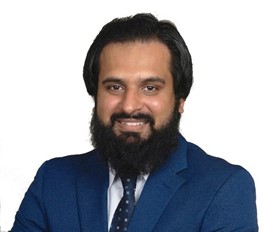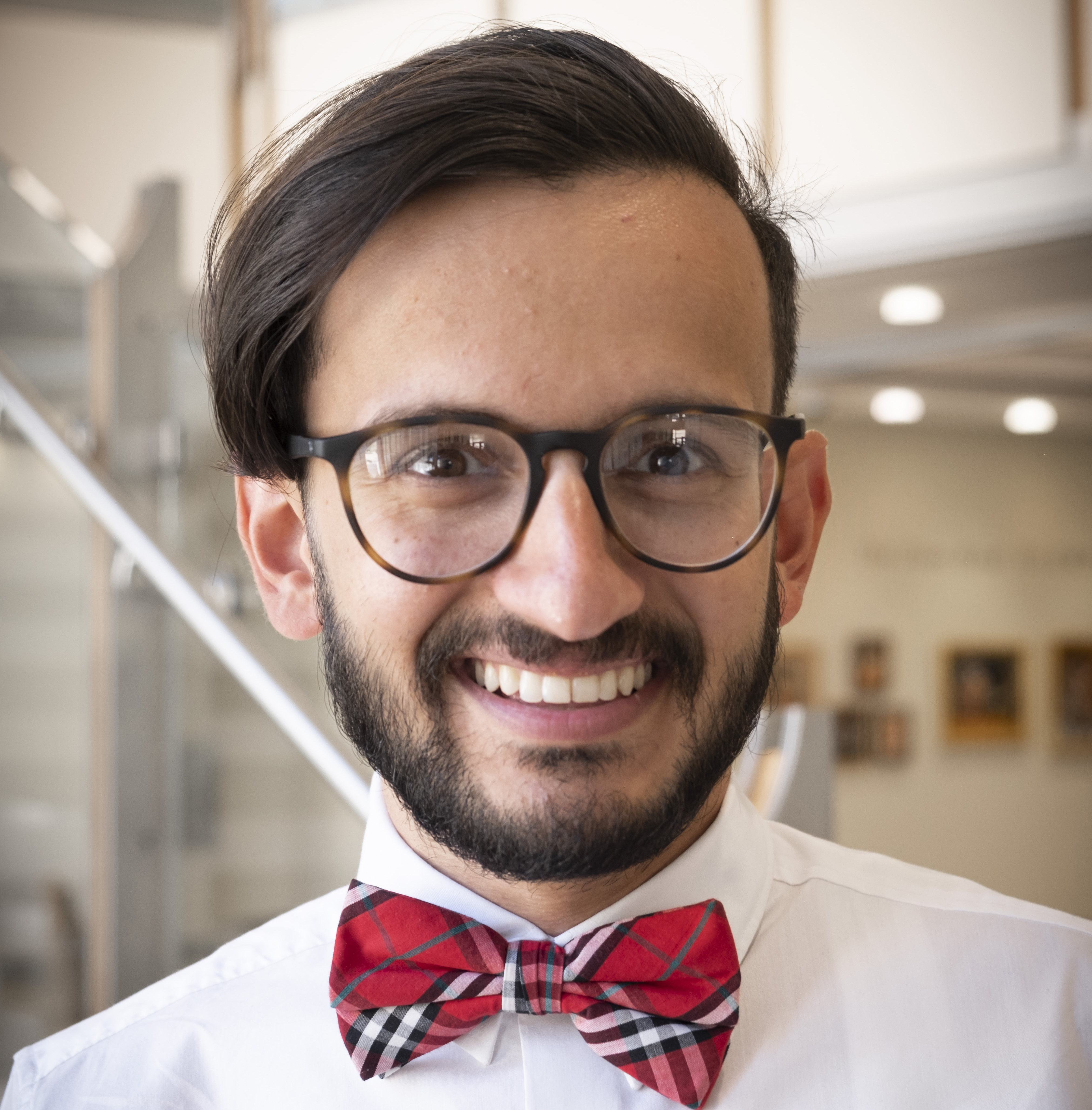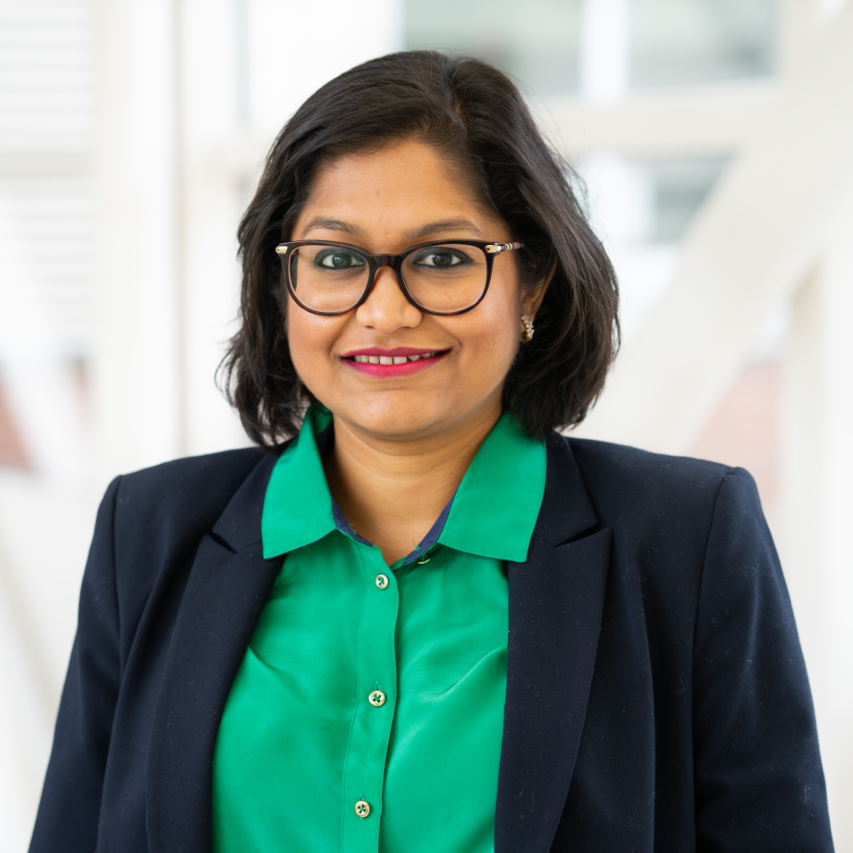ASH Clinical Research Training Institute Experience: Hematology and Oncology Fellows Network Discussion



Articles in Hematopoiesis are written for trainees by trainees, under the oversight of the ASH Trainee Council. The material published in Hematopoiesis is for informational purposes only. The opinions of the authors are their own and do not necessarily represent the official policy of the American Society of Hematology. ASH does not recommend or endorse any specific tests, physicians, products, procedures, or opinions, and disclaims any representation, warranty, or guarantee as to the same. Reliance on the information provided in this publication is solely at your risk.
 The Hematology and Oncology Fellows Network (HOFN) is a group on Twitter that organizes discussions related to hematology and oncology (hem-onc) training. Here we summarize and expand on our ASH Clinical Research Training Institution (CRTI) experience using Twitter spaces.
The Hematology and Oncology Fellows Network (HOFN) is a group on Twitter that organizes discussions related to hematology and oncology (hem-onc) training. Here we summarize and expand on our ASH Clinical Research Training Institution (CRTI) experience using Twitter spaces.
ASH CRTI is a unique yearlong mentoring program for fellows and junior attendings at academic centers. It consists of a week-long workshop, an in-person meeting during the ASH annual meeting, and a one-day conference at ASH headquarters along with mentorship through distance learning.
The session, which took place September 28, was organized by HOFN (@hemoncfellows) and moderated by Dr. Ghulam Rehman Mohyuddin. Dr. Pallawi Torka led the discussion on her experience with ASH CRTI with contributions by 2019 ASH CRTI graduates Drs. Hira Mian (@HiraSMian), Andres Gomez (@GomezDLeonMD), Raj Chakraborty (@rajshekharucms), and Mike Leukam (@Leuk0cyte1).
Dr. Ghulam Mohyuddin: Dr. Torka, for full disclosure, I applied for the ASH CRTI, but my application was not accepted last year. I still learned a lot from that process, however, and found it very beneficial. Please tell us about your application experience.
Dr. Pallawi Torka: Do not be discouraged by that. I did not get selected for the ASH CRTI on my first attempt either. Nevertheless, I got excellent feedback from the CRTI review committee. The feedback letter was detailed and included comments on my letter of support, my supervisor, and my proposal. The meticulous details helped me draft a better application for the next cycle, and that is when I got accepted.
GM: In your experience, what makes a successful application for CRTI?
PT: That is a great question. For CRTI, one-third is your application, one-third is your mentor, and one-third is your institution. The application itself is comprised of a study proposal and letter of intent. These components determine how robust your idea is. Additionally, your letter of support from a mentor and support from an institution that allows ample time for research play a similarly significant role in the acceptance of your application.
Dr. Hira Mian: I agree with Dr. Torka. For me, finding a mentor in Dr. Tanya Wildes was the best thing that ever happened. Her letter of support was the most crucial part of my application. She encouraged me to apply, helped me with my proposal, and in turn I have been afforded with this great opportunity.
Dr. Mike Leukam: Another point that I would add is to review your letter of intent and proposal thoroughly with your mentor, and ask someone who has successfully submitted an ASH CRTI application previously to share their application with you. I was fortunate to have this opportunity, and it contributed to the success of my application.
GM: Does the name of your institution play any role in getting your application accepted for CRTI?
PT: When you see the alumni of ASH CRTI, it gives the impression that institutions such as Dana Farber, Cleveland Clinic, MD Anderson, Mayo Clinic, University of Chicago are awarded the majority of the positions. I think the aptitude of trainees and junior faculty, adequate time to complete the project, and a strong letter contribute to a higher chance of success. I am from Roswell Park Cancer Institute, and I was the only one from my institute at CRTI in the past 10 years. So, there is an opportunity for everyone.
HM: I am from McMaster in Canada, and I am the second person ever to get accepted to ASH CRTI. As I said previously, your mentor’s letter is a powerful determinant.
GM: So, tell us about your experience at ASH CRTI.
PT: Oh, it was terrific. We were a small group of 20 participants, and we had 25 faculty members. I was in the lymphoma group with four other participants. The best part of the experience was the one-to-one faculty to participant ratio, which allowed us to accomplish and learn a lot. We had statisticians in every group who contributed to our work. Overall, it was a fantastic experience.
GM: Dr. Gomez, how was your experience as a participant from outside the United States?
Dr. Andres Gomez: It was wonderful. I connected to the faculty mentors who helped me develop my project into more meaningful work. At the same time, I connected to amazing people like Dr. Pallawi, Dr. Mian, and others. We also had two physicians from Nigeria working on cancer treatment in low-income countries, and I learned a lot from their experiences.
GM: Is there anything that you would like to change about your experience at ASH CRTI?
PT: I wish I came in more prepared. I had these amazing mentors available to me who are world renowned experts in their field, and I wish I had asked them more questions about project ideas and career trajectories. With regards to the meeting week itself, I do not think it could have been any better.
GM: Did you have any fellows in the attendee group, or were you all junior faculty members?
Dr. Raj Chakraborty: I was a fellow when I attended the ASH CRTI workshop. There were other fellows there too. For me, it shaped my career. It was there that I learned how to write a proposal for a grant. Though CRTI is not a grant-driven program, writing the letter of intent was almost identical to writing a grant proposal. I was lucky that Dr. Navneet Majhail was my mentor and a faculty member in the workshop, and I enjoyed working with him there.
GM: What was the focus of research at ASH CRTI? Was it primarily clinical trials, or were there other proposals?
PT: It was all kinds of research. We had clinical trialists, global health and cancer disparities research, prospective research, and observational studies.
ML: My study proposal was a phase I/II clinical trial. I was fortunate to open the trial at my original institution, and now I am working on opening it at my current institution. Some people had basic science proposals, observational studies, and international group collaborations. We had an introductory statistics course with additional statistics support within each group, which was terrific.
GM: How did participating in ASH CRTI help you in your career afterward?
PT: ASH CRTI led to several opportunities for all of us, including an invitation to review abstracts, volunteer in ASH committees, and review trainee grants. Once you are a CRTI alumnus, ASH and the CRTI mentors are invested in your career success and open a lot of doors for you. I reviewed abstracts for the “Outcomes in Lymphoid Malignancies” session last year at the annual meeting and got the honor of chairing the oral abstract session. I was also a junior reviewer for the Minority Recruitment Initiative section trainee grant review committee. Additionally, we have built a successful collaborative group with peer mentoring. Dr. Naren Epperla, my colleague at ASH CRTI, invited me to participate in a retrospective study that was presented at last year’s ASH annual meeting. This year, I forwarded an invitation to him to participate in a multi-institutional outcomes study. The fact that so many of us from our class are attending this session today is testimony to the camaraderie that we shared at ASH CRTI.
HM: Meeting wonderful mentors and collaborating with enthusiastic physician-scientists has been the best thing that happened to my career after meeting Dr. Wildes. The workshop design is centered around the attendees, and I have been able to review ASH journals, attend more ASH and Canadian myeloma conferences, and better understand myeloma research after attending ASH CRTI.
GM: Thank you so much, everyone, for your time. All of these responses have convinced me to work harder on my ASH CRTI application for the next cycle. Is there any final message before we conclude?
PT: If you need additional help with your application, please reach out to any of us . Persistence is rewarded, and repeat applications are viewed favorably, so definitely apply again if you failed the first time. It is a career-enhancing opportunity, and I’ll encourage every fellow to try to attend it or any similar workshop from the American Society of Clinical Oncology or the American Association for Cancer Research.
GM: Thank you so much for your time, everyone. It was immensely helpful.
- Burns LJ, Clayton CP, George JN, et al. The ASH Clinical Research Training Institute (CRTI) positively impacts the success of early career hematologists in patient-oriented clinical research. Blood. 2013;122:1679.